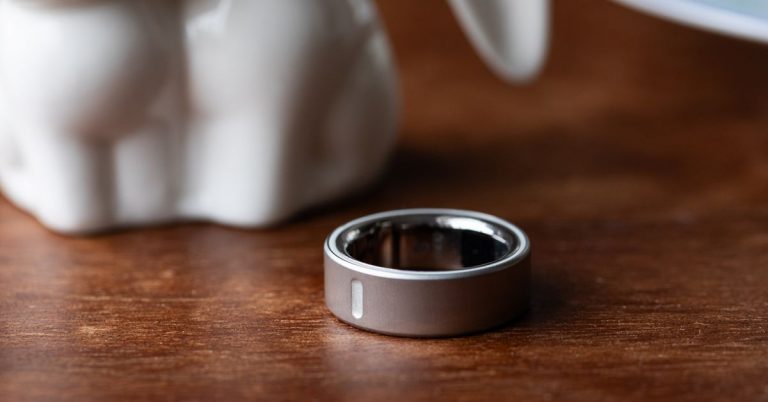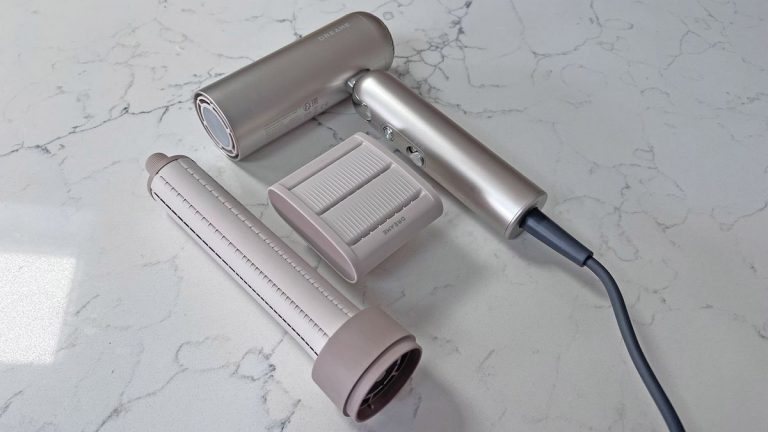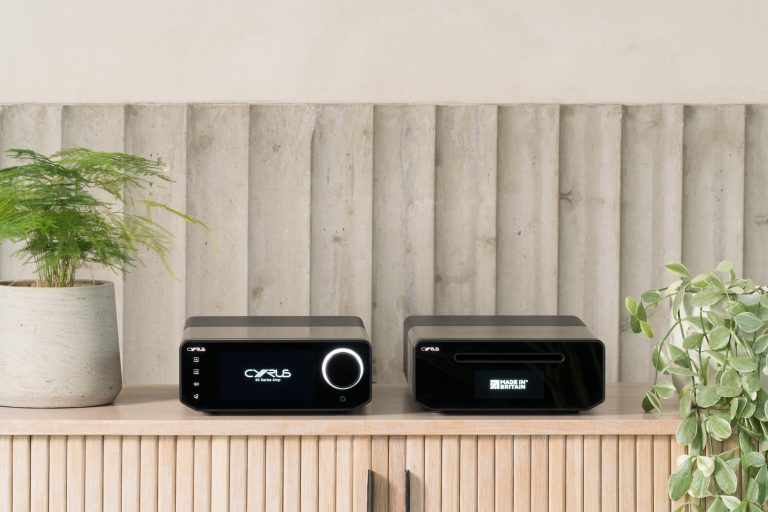KitchenAid Go Cordless Personal Blender review

KitchenAid Go Cordless blender: two-minute review
Product info
This blender has slightly different names and product codes in different territories:
US: KitchenAid Go Cordless Personal Blender KSBR200BM
UK: KitchenAid Go Cordless Portable Blender 5KSBR256BM
AU: KitchenAid Cordless Go Personal Blender 5KSBR200A5KRB12ABM
We tested the UK version. Be aware there may be minor differences between different countries’ models.
The KitchenAid Go Cordless Personal Blender (or Portable Blender, in the UK) is part of the brand’s range of cordless kitchen appliances, all of which are compatible with the same removable, swappable battery. It’s too bulky and heavy to be an on-the-go blender that you’d take out with you, but rather seems to be aimed at those that are short on power outlets and/or kitchen space.
The blending cup is a good size for a generous single-serve smoothie or protein shake. The blade section screws on to the top and then the whole thing flips over and is twisted on to the motor section. Blending is operated by button, and there’s one speed and a pulse function.
When you’re done blending, you remove the cup and blade – carefully, as it is possible to twist the cup off the blade accidentally, leading to your mixture pouring all over the blender – and either decant or swap the blade for the to-go lid (well-designed, with a carry loop that screws off to become a smaller opening to sip from). The battery slots on and off easily and provides a maximum of 20 minutes’ blending time.
In terms of performance, the KitchenAid Go Cordless is a little underwhelming. On test, it coped well with soft ingredients and very liquid blends, but struggled a little with tougher ingredients and frozen fruit. All the corded options in our best blender guide pack more power and can deal with more challenging blending tasks.
Price-wise, it’s in the mid range. It feels well made and good quality, and perhaps worth it if you specifically want the Go range with its swappable batteries. However, depending on your priorities, there are cheaper options that are more powerful or more portable. That’s the short version; read on for my full KitchenAid Go Cordless Blender review.
KitchenAid Go Cordless blender review: price & availability
- List price with battery: $129.99 / £179 / AU$228
- List price without battery: $99.99 / £149 / AU$159
- Launched May 2024, available in the US / UK / AU
In the US the version with the battery is $129.99 (reduced to $99.99 at time of writing) while the version without is $99.99 (down to $79.99). In the UK it’s £179 or £149 if you already have a battery. In Australia, the version with a battery is AU$228 or the version without is AU$159. That puts it in the mid-range price bracket of blenders overall.
You’re definitely paying for the convenience of it being cordless and part of the Go set, with swappable batteries. If that’s not your priority, there are plenty of better-value options.
In terms of performance, it’s more similar to a personal, on-the-go blender (i.e. not super powerful), which you can pick up for a much lower price. For example, the Nutribullet Magic Bullet Portable Blender costs $39.99 / £39.99 / AU$79.95. Alternatively, the cheapest countertop model from that brand, the Nutribullet 600 Series, costs $69.99 / £59.99 /AU$99.95, and it’s significantly more powerful than the Go.
With all kitchen appliances, it’s worth shopping around major sales events like Amazon Prime Day or the Black Friday sales, as we often see discounts around then.
- Value for money score: 2.5 out of 5
KitchenAid Go Cordless blender specs
| LIst price: | $129.99 / £179 / AU$228 |
| Jug capacity: | 16oz / 473ml |
| Dimensions (H x W x D): | 30 x 12.2 x 12.9cm |
| Wattage: | Not stated |
| Max runtime: | 20 mins |
| Speed settings: | One + pulse |
| Jug material: | BPA-free plastic |
| Dishwasher safe: | Blender jug bottom rack, blade and travel lid top rack |
KitchenAid Go Cordless blender review: design
- Cordless with removable battery, but too bulky to be a to-go blender
- Well-designed to-go lid screws on to blend cup
- Dishwasher safe (apart from the motor section, obviously)
The KitchenAid Go Cordless Personal blender is part of the Go range, which includes six cordless appliances, all compatible with the same swappable, rechargeable battery.
The whole thing is cordless, but how useful that is is limited by the fact that it’s not compact or light enough to be considered an ‘on the go’ blender. I guess the range is aimed at those who are short on outlets and/or space in their kitchen, because it is fairly compact. It’s also quite nice to not have to be tethered to a power outlet in general, and especially so if you happen to run the Homes channel for a major tech website and have approximately 12 kitchen appliances all vying for socket space at any one time.
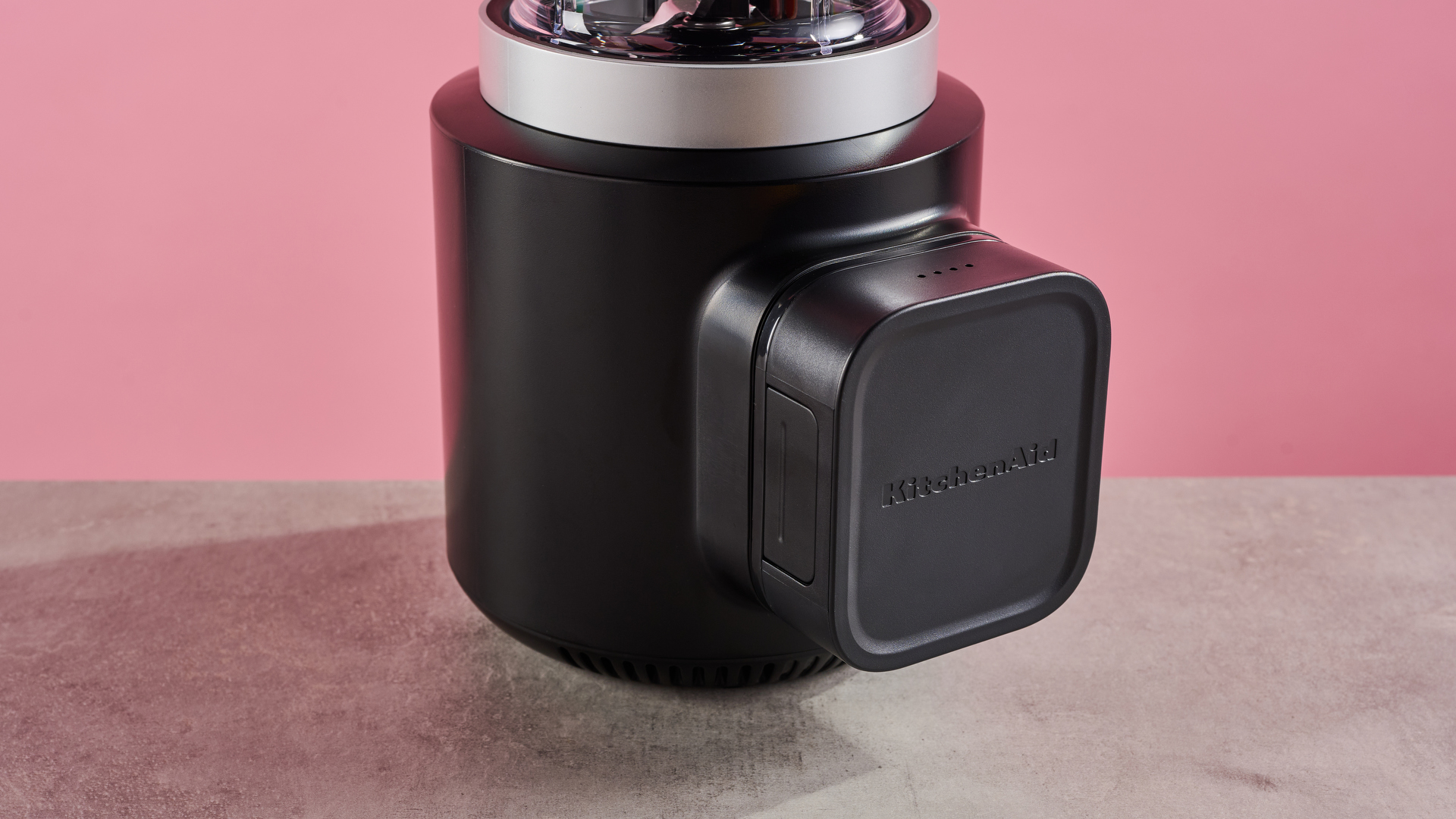
The 12V battery charges via USB-C and clips off the main unit by pressing two large, squeezable buttons on either side. It comes on and off easily. On full charge, it offers up to 20 minutes of use, with the battery level indicated by four LEDs. You could keep a spare to hand if you were worried about being caught short in a blending emergency.
The blade section is separate and can be screwed on to the blending jug, and then twisted into place on the motor unit. It’s a motion similar to a Nutribullet, but unlike that brand it won’t automatically begin blending when the blade is twisted on. Instead, blending is operated by two wide, narrow buttons on the front of the blender – one for ‘on’ and one for ‘pulse’.
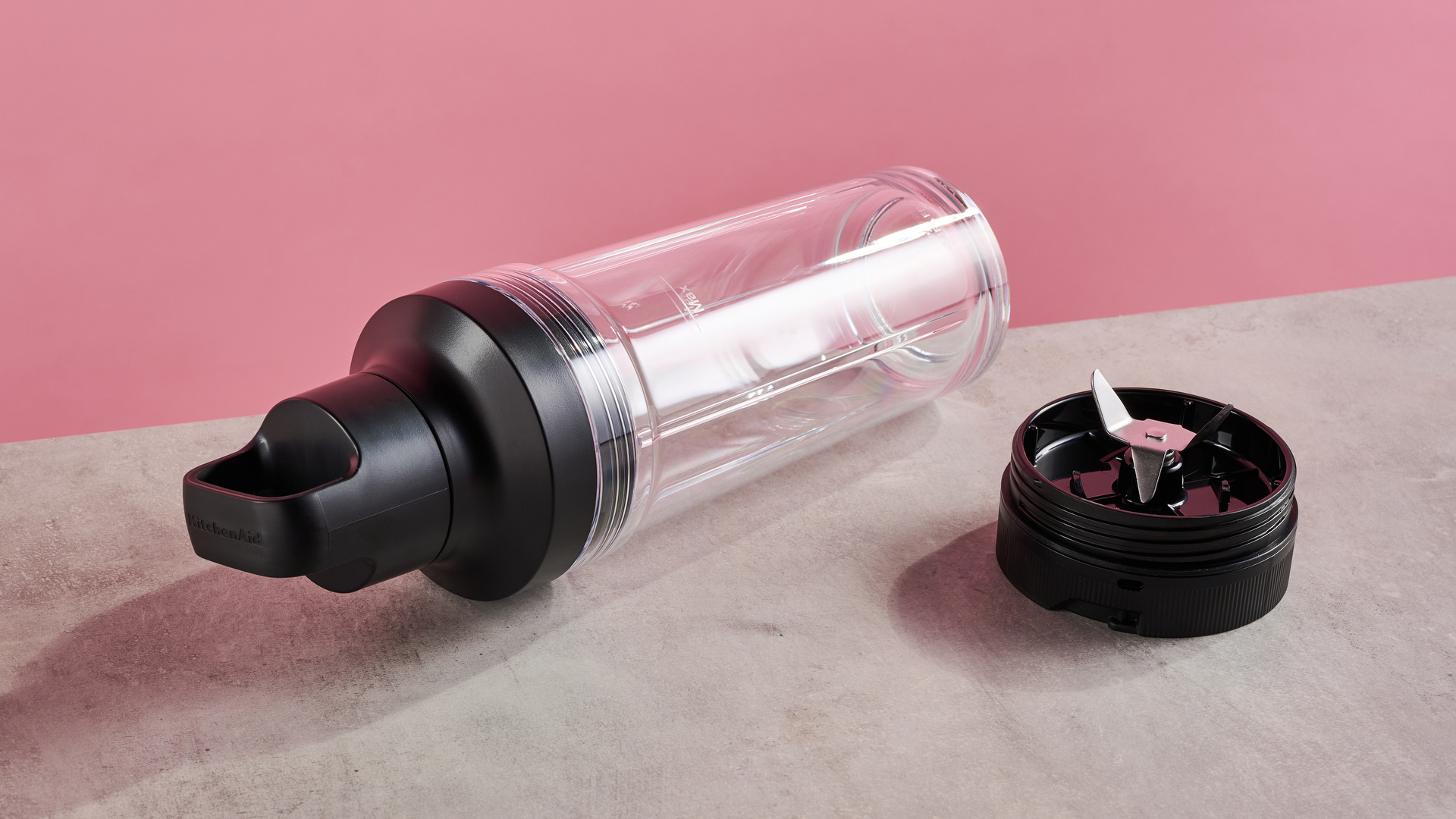
The blending cup is made from BPA-free plastic and feels nice and robust. With a capacity of 16oz / 473ml, it’s a good size for a single-serve smoothie or protein shake. When you’re done blending, the blade can be screwed off and a replaced by the to-go lid. This is especially well-designed; there’s a carry loop that can be removed to reveal a narrow opening to drink through.
My main issue with the design is that if you’re not paying attention, it’s fairly easy to accidentally unscrew the jug from the blade, rather than the whole thing from the motor base, leading to whatever you were blending pouring out over your blender. It’s obviously partly just user error, but I did manage this this twice while testing the Go, and have never had the issue with any Nutribullet I’ve tried. There’s still hummus stuck in the buttons.
Cleaning
The cup, blade and to-go lid are all dishwasher-safe; the latter two on the top rack. That makes cleaning super-simple, unless you don’t have a dishwasher. Sadly, I fall into that camp. So how easy is it to hand-wash? It’s okay. The blade isn’t as fiddly as, say, a Nutribullet one (the bane of my life), but it’s also not exactly a breeze to get clean, with a few inaccessible nooks and crannies. I think that’s unavoidable with most blenders, though.
The most annoying thing is that the cup is narrow enough that unless you have freakishly small hands, or a child who’s keen on washing up, you’re going to struggle to get to the bottom with a cloth or sponge. Of course, you can employ the method of adding soapy water, screwing a lid on and doing a vigorous shake, but that doesn’t always dislodge stuck-on food. As with any blender, it helps massively if you remember to rinse everything straight after blending, so no food gets dried on in the first place.
KitchenAid Go Cordless blender review: performance
- Blends soft ingredients effectively; good for smoothies
- Not powerful enough for ice and hit-and-miss with frozen berries
- Best for liquid blends like smoothies and protein shakes
First I tested the KitchenAid Go Cordless blender’s smoothie-making prowess with a banana, blueberry and spinach smoothie. I used sliced and frozen bananas and blueberries, and the motor wasn’t powerful enough to deal with that – the mix jammed the mechanism. I wouldn’t necessarily expect a smaller blender like this to be able to tackle frozen ingredients, although KitchenAid does claim this is powerful enough to blend ice (I did try with ice, with predictably underwhelming results; the cubes just pinged it about in the blending cup).
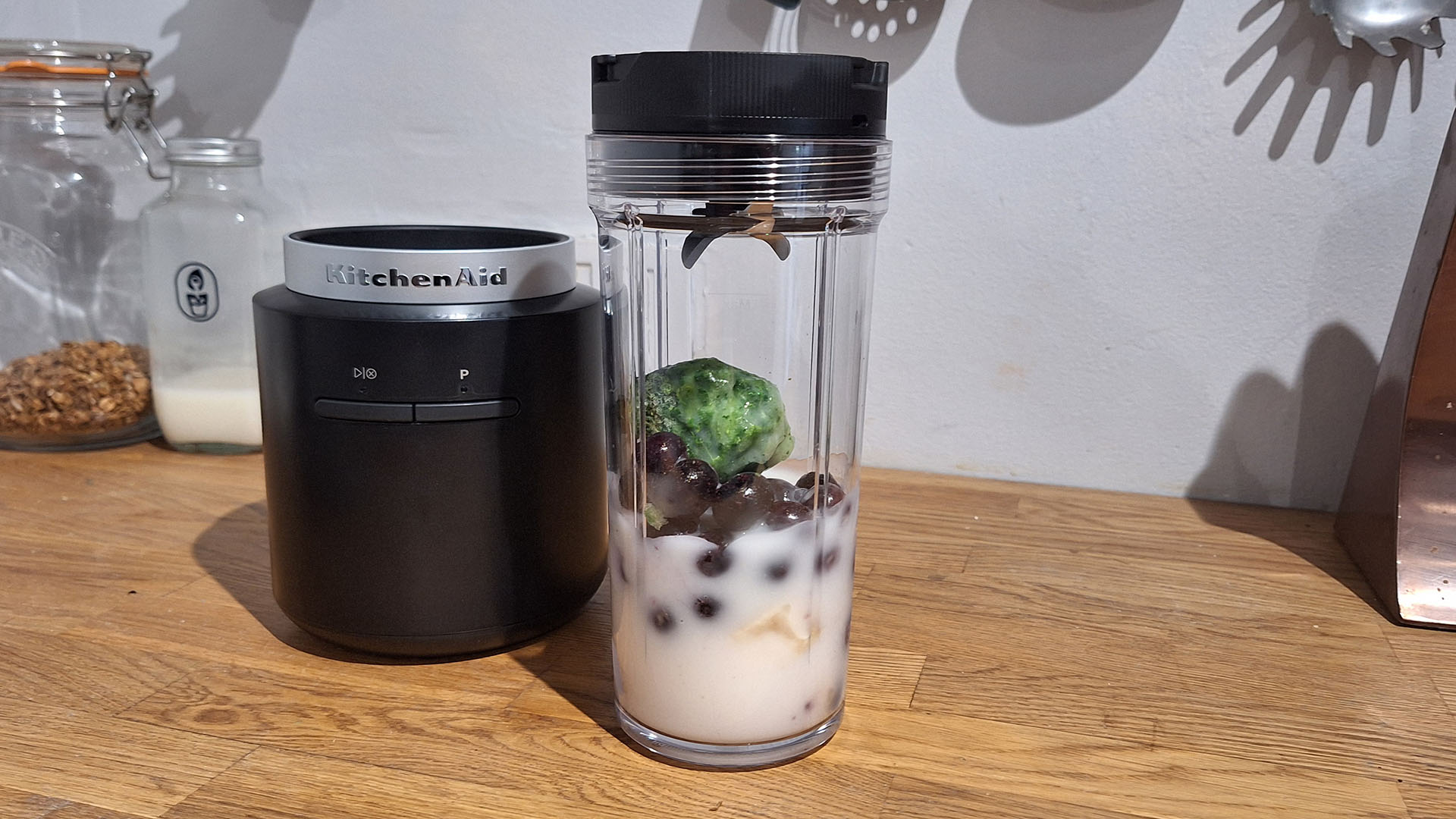
I left the ingredients to defrost, and then it had no issues whipping them into a mostly smooth concoction. Nothing got stuck up the sides while I was blending, and only a berry or two managed to elude the blades.
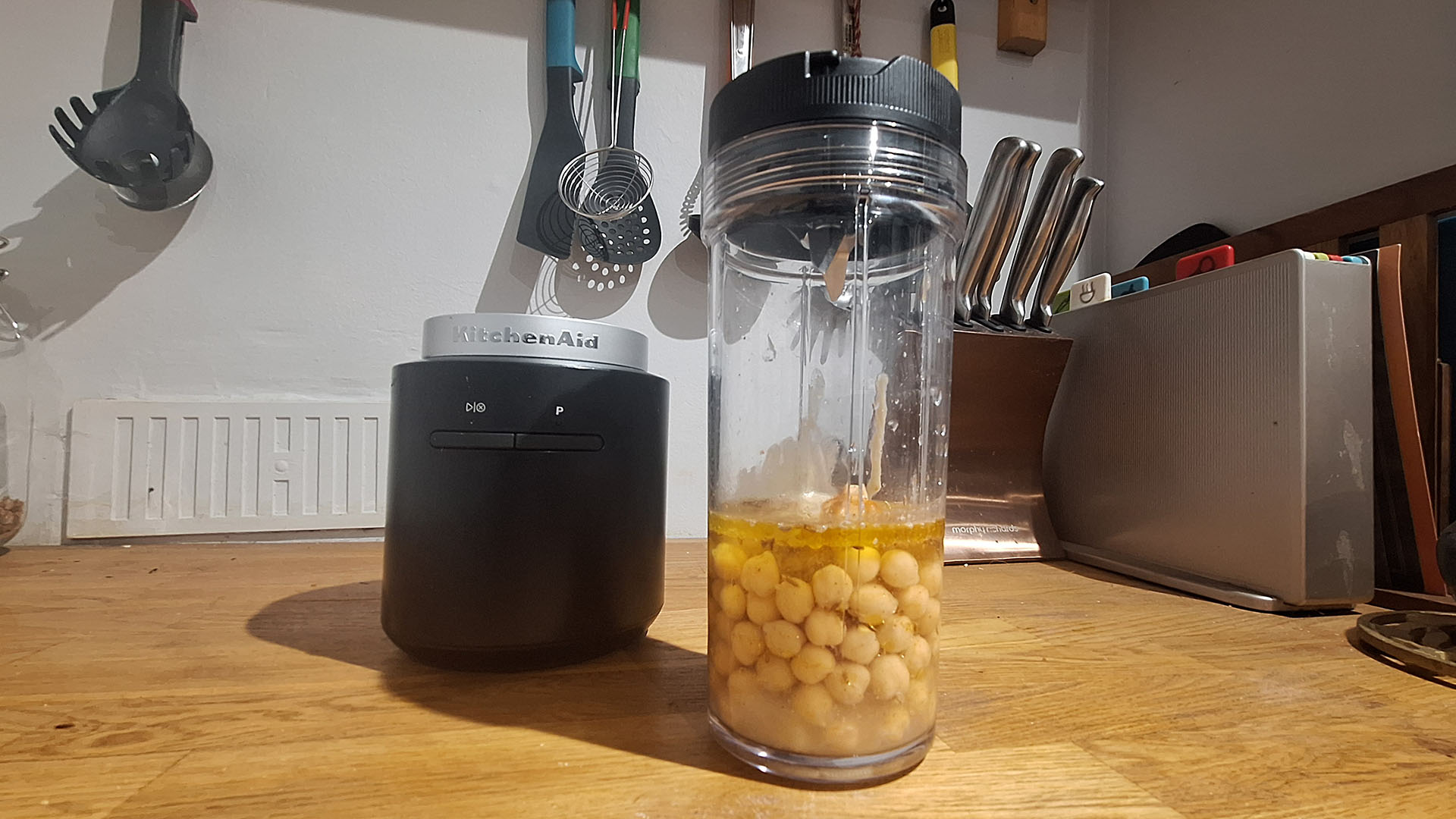
Blenders are designed mostly for drinkable/spoonable concoctions, but I also gave the Go Portable a go with hummus and pesto. It managed hummus pretty well, provided I added enough liquid (the pulse button was useful for getting ingredients moving when required), but it was useless when it came to pesto, leaving lots of unblended leaves at the top of the jug. Overall, I’d recommend it for smoothies and soft ingredients, but nothing more challenging.

When running, the blender makes quite a piercing sound. No blender is quiet, but I’d say this one is a bit more jarring than most.
- Performance score: 3 out of 5
Should you buy the KitchenAid Go Cordless blender?
| Attribute | Notes | Rating |
|---|---|---|
| Price | Well made, but there are more powerful, or more portable, options for much cheaper. Only worth it if you’re using lots of Go appliances. | 2.5/5 |
| Design | Cordless but not compact enough to be portable. Easy to use and well designed, although you’ll need to be careful not to accidentally unscrew the blade when removing the cup from the motor. | 4/5 |
| Performance | Good for soft ingredients and liquid blends, but nothing more challenging. | 3/5 |
Buy it if…
Don’t buy it if…
How I tested the KitchenAid Go Cordless blender
- Made a smoothie, hummus and pesto, and tried crushing ice
- Hand-washed all components to see how easy it was to clean
- Compared the Go’s performance to other blenders I’ve tried
To test the KitchenAid Go Cordless blender, I used it to make smoothies with frozen and then defrosted fruit, taking the results out with me to test the to-go lid. I also tried blending up hummus, pesto and ice. I made a note of the consistency of results, ease of use, and whether the ingredients needed a mid-blend shake-up. I also assessed the blender’s build quality and noise levels in use. I hand-washed the cups and blade after each test to see how easy it was to clean. I compared my results to other blenders and choppers I’ve used.
Read more about how we test
First reviewed July 2024
Source: www.techradar.com

